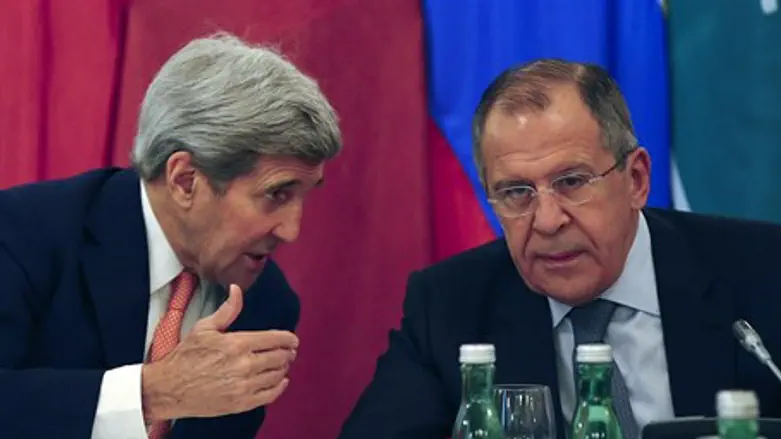
The United States and Russia announced Monday that a cessation of hostilities in Syria will go into effect this Saturday on February 27 - after a previous attempt for a ceasefire last Friday failed miserably.
In a joint statement, the two countries said Saturday's partial truce would begin at midnight Damascus time and would apply to parties to the conflict that have committed to the deal - but not to the Islamic State (ISIS) group or Nusra Front, an Al Qaeda affiliate.
US Secretary of State John Kerry, who has been working with his Russian counterpart Sergei Lavrov to secure an agreement, welcomed the deal.
"If implemented and adhered to, this cessation will not only lead to a decline in violence, but also continue to expand the delivery of urgently needed humanitarian supplies to besieged areas and support a political transition to a government that is responsive to the desires of the Syrian people," Kerry said in a statement.
Parties wishing to be included in the agreement have until noon Damascus time Friday to inform Russia or the United States of their intention to honor the ceasefire.
In return, the groups would be assured of protection from Russian and US-led coalition planes. The two powers are pursuing separate air wars in Syria, with Russia pounding rebel targets and the coalition focused on the ISIS group.
"The United States and the Russian Federation together call upon all Syrian parties, regional states and others in the international community to support the immediate cessation of violence and bloodshed in Syria and to contribute to the swift, effective and successful promotion of the UN-facilitated political transition process," said the joint statement, released by the US State Department.
UN Secretary-General Ban Ki-Moon lost no time on Monday welcoming the agreement as a "long-awaited signal of hope" and urged all sides to abide by it.
The agreement comes on the heels of another deal announced by top diplomats in Munich earlier this month, which was to go into effect last Friday.
The deadline of that ceasefire came and went with no end to the bloodshed in Syria.
Monday's new ceasefire agreement also comes in the wake of the deadliest bombing spree in the history of the Syrian civil war that has been raging since 2011 and left over 260,000 dead.
In the wave of attacks on Sunday a string of suicide bomb attacks hit near a Shi'ite shrine south of Damascus, killing 120 people in total.
The ceasefire deal is problematic in that it is partial and does not include ISIS or Nusra Front, complicating its implementation.
AFP contributed to this report.